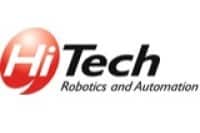An Employee Ownership Trust (“EOT”) is a trust that acquires shares in a company and holds them on behalf of the employees. It is an increasingly popular exit strategy for shareholders, which offers attractive tax incentives and peace of mind over the succession of the business and its employees. EOTs are in essence a form of employee benefit trust introduced by the UK Government in 2014. This was to encourage shareholders to follow an ownership structure similar to the John Lewis model. Research suggests that employee-owned businesses achieve higher productivity levels and greater innovation than privately owned businesses and are more resilient to economic turbulence.
EOTs facilitate tax benefits for both the exiting shareholders and the employees benefiting from indirect ownership. Assuming certain qualifying conditions are met, there is no capital gains tax payable by the exiting shareholders on the disposal of their shares to the trust. Employees can receive up to £3,600 on income tax-free bonuses per year (however, National Insurance Contributions will still need to be paid by the employee and the company).
Capital Gains Tax
Providing certain qualifying criteria are met, the selling shareholders will benefit from full capital gains tax relief. The qualifying criteria are discussed later in this article.
If the sellers were to sell the company to an individual or an acquiring company then the consideration would be subject to CGT which (at current rates) is 20%. Should the selling shareholder qualify for Business Asset Disposal Relief (“BADR”, formerly Entrepreneurs Relief) then this would reduce the CGT liability on the first £1m of consideration to 10%.
The exiting shareholders do not need to sell all of their shares, but do need to sell more than 50% of shares to an EOT to qualify for the tax benefits discussed above. This means that a shareholder could, if they so wished, retain a minority shareholding.
Inheritance Tax
As an EOT is for the benefit of all employees, the EOT is generally excluded from the 10-year IHT charge, as well as IHT exit charges, that can arise on certain trust arrangements.
Exiting shareholders must be aware, however, that the consideration they receive on the disposal of their shares to the trust will form part of their estate for IHT. Conversely, shares held in a company may be exempt from IHT by way of Business Property Relief (“BPR”).

Income tax for employees
Eligible employees within the EOT can receive a bonus payment of £3,600 per annum which is exempt from income tax (national insurance contributions are still payable however by both the employee and the company).
As bonuses are generally awarded following the financial performance of the company, it stands to reason that employees can be said to benefit directly from their input into the company.
The bonus awarded to the employees must either be the same for all employees or must be apportioned upon the basis of one of the following apportionment methods:
- Annual remuneration;
- Length of service;
- Hours worked.
How to qualify for these tax benefits?
Several criteria must be met to qualify for the relevant tax relief.
Our team of experienced EOT experts at Hawsons are on hand to guide you through the qualifying criteria and help achieve compliance.
Pete Wilmer
Corporate Finance Partner
Free initial meeting
Related EOT content

Pete Wilmer
Senior Partner
Pete leads the Corporate Finance offering across the firm, having has spent much of his career within a large international accountancy firm and corporate banking before returning to Hawsons, where he started. Working with businesses of all sizes, Pete has an exceptional breadth of experience which he brings to the benefit of clients.
An early adopter and passionate believer in good employee ownership, Pete has helped numerous businesses transition to employee ownership and works extensively to promote the employee ownership model.
Related content
TMS Europe complete transition to an Employee Ownership Trust
Peter Wilmer and Jack Ware, members of the Hawsons Corporate Finance team, acted as lead advisors for TMS Europe Limited’s (“TMS”) transition into employee ownership. Ryan Fitzpatrick from Shakespeare Martineau LLP provided legal advice on the transaction. TMS Europe...
Hi-Tech Automation – 12 months into Employee Ownership
Employee Ownership is where the whole or part of a Company is owned by, or on behalf of, its employees. The government introduced some new and relatively generous tax reliefs for employee-owned companies in 2014 and since then Employee Ownership Trusts (“EOTs”) have...
Employee ownership trust problems
In this article, we are going to outline some of the problems that might arise if the transition to employee ownership is not managed and advised on correctly.Valuation of the company When selling your business to an EOT it is very important that you keep the...




